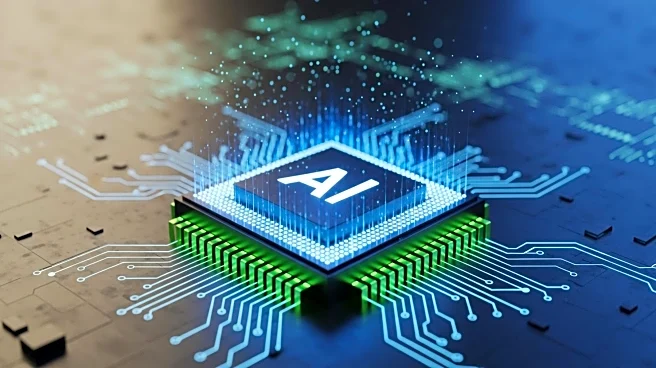What is the story about?
What's Happening?
Nvidia CEO Jensen Huang has reported a significant increase in demand for AI computing over the past six months. Speaking on CNBC's 'Squawk Box,' Huang noted that the development of artificial intelligence models has progressed from simple question-answering to complex reasoning, driving substantial demand for computing power. Nvidia shares rose by approximately 2% following Huang's comments, contributing to a rise in the Nasdaq Composite. Huang emphasized the exponential growth in demand for Nvidia's advanced GPU, Blackwell, and described the current period as the beginning of a new industrial revolution. Nvidia plans to invest $100 billion in OpenAI's data center expansion, which aims to build 10 gigawatts of data centers using Nvidia chips. This expansion raises concerns about securing sufficient power to support the industry's ambitions, as 10 gigawatts equates to the annual power consumption of 8 million U.S. households.
Why It's Important?
The surge in AI computing demand underscores the transformative impact of artificial intelligence on various sectors, including technology and energy. Nvidia's investment in data center expansion reflects the industry's commitment to meeting growing computational needs. However, the challenge of securing adequate power for these data centers highlights potential bottlenecks in infrastructure development. The comparison between the U.S. and China in terms of energy readiness for AI expansion suggests competitive dynamics that could influence global leadership in AI technology. The need for new power generation methods, such as natural gas and nuclear power, indicates a shift towards sustainable energy solutions to support AI growth.
What's Next?
As the AI industry continues to expand, stakeholders may focus on developing innovative energy solutions to meet the increasing power demands of data centers. Nvidia's investment in OpenAI's data center buildout could prompt other companies to explore similar initiatives, potentially leading to collaborations or partnerships in energy and technology sectors. Policymakers might consider regulatory frameworks to facilitate the integration of new power generation methods, ensuring that AI growth does not adversely affect consumer electricity prices. The competitive landscape between the U.S. and China in AI development may drive further investments in infrastructure and technology to maintain or enhance global positioning.
Beyond the Headlines
The rapid growth in AI computing demand raises ethical considerations regarding energy consumption and environmental impact. As data centers require substantial power, the industry must balance technological advancement with sustainability. The potential reliance on natural gas and nuclear power for data centers could spark debates on environmental policies and the long-term implications of energy choices. Additionally, the competitive dynamics between the U.S. and China in AI development may influence geopolitical relations and trade policies, as both nations strive to lead in technological innovation.

















